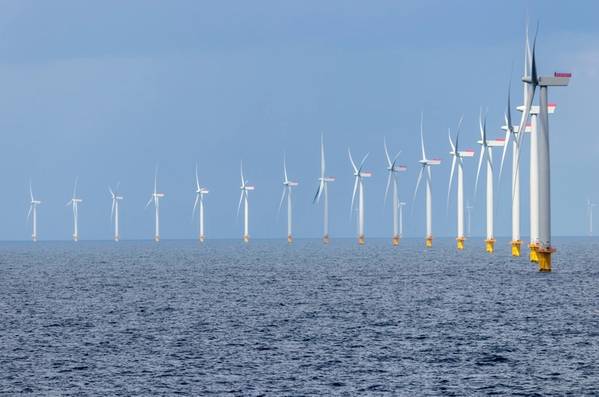
Members of the European Parliament (MEPs) set out recommendations on how to deploy offshore wind more quickly, in a report adopted earlier this week.
The report, voted on by MEPs in response to a European Commission communication, stresses that meeting the 2030 and 2050 targets requires faster deployment of offshore renewable energy, but maritime space and coasts must be managed more sustainably.
According to the European Commission, the energy production targets for offshore renewable energy in all of the EU’s sea basins are at least 60GW by 2030 and 340GW by 2050.
MEPs highlight that the cost of offshore wind has fallen dramatically in the last two decades (declining by 48% between 2010 and 2020), making it one of the most competitively priced sources of energy. However, if fossil fuels and fossil fuel subsidies are not phased out, meeting renewable energy goals and limiting global warming to less than 1.5°C by the end of the century will be impossible, they say.
MEPs said this week that a net-zero emissions economy requires renewable energy to be deployed on an unprecedented scale, and stress the urgency of improving and expanding existing infrastructure. Many member states are lagging behind in the necessary switch to renewables, they said.
According to a press release by the European Parliament, MEPs stressed the importance of shortening procedures to get a permit and called on the member states to set up a transparent process and consider introducing time limits for issuing permits where necessary.
They stress that the EU is a technological leader in the offshore renewable energy production sector and could expect a significant economic boost by supporting the growth of clean energy production. The NextGenerationEU recovery fund provides a unique opportunity to mobilize capital in addition to private investments, they said.
Offshore Wind and Fishing, Shipping Must Coexist
MEPs said that offshore wind farms can benefit marine biodiversity if designed and built sustainably, but must coexist alongside other activities, such as fishing and maritime transport. They said that work needs to be done in order for the public to accept offshore wind and to convince citizens that renewable energy is key to achieving energy independence and security of supply.
It is crucial to design, develop and deploy renewable offshore energy in a circular and renewable way, as substantial amounts of metals and minerals are needed, MEPs said, according to the press statement. They also called for an EU-wide landfill ban on decommissioned wind turbine blades by 2025.
Time is of the essence
"The offshore renewable energy strategy is key to the green transition, where time is of the essence. We need lots of green electricity to fulfil our climate objectives and the offshore renewable energy strategy is absolutely essential in this regard", said lead MEP Morten Petersen (Renew, DK).
"Today's vote shows that we all understand the urgency of the matter and that we are putting offshore renewable energy front and centre in the fight against climate change. We need to introduce time limits, and remove the many barriers that are still standing in the way of a fast and successful integration of renewables in Europe”, he added.
The report was adopted with 518 votes to 88, with 85 abstentions.